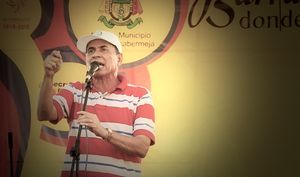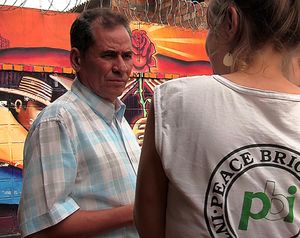The Bar Human Rights Committee (BHRC) has submitted an amicus curiae brief to the Supreme Court of Colombia in the case of David Ravelo Crespo, a Colombian human rights defender who has been in prison since 2010. Mr Ravelo is a member of CREDHOS, a regional human rights organisation in the Magdalena Medio region.

David Ravelo was detained on 14 September 2010 and on 5 December 2012 was sentenced to 18 years in prison for aggravated murder. International human rights organisations have denounced the conviction as politically motivated, highlighting procedural irregularities during the trial. They point out that the conviction is based principally on the statements of a demobilised paramilitary agent and former guerrilla, who testified under Justice and Peace Law (JPL) 975 of 2005, a widely criticised law that offers reduced sentences in return for information. International experts have also highlighted procedural irregularities during the case that have undermined the defense of Mr. Ravelo. These include concerns over the legitimacy of the prosecutor who led the initial investigation, William Pacheco Granados, a former Police lieutenant who had been barred from public office for his alleged involvement in the forced disappearance of a young man in Armenia province.

Kirsty Brimelow QC, Chair of the BHRC and Counsel to the amicus curiae brief, said: "As Colombia moves into a post-conflict state it is crucial to examine the cases that play around the interchangeable truth and lies of conflict. David Ravelo Crespo has been deprived of his liberty for four years. He has a fundamental right to a fair trial which includes a fair and robust investigation by an independent prosecutor. The Amicus Curiae submitted by the Bar Human Rights Committee of England and Wales argues that Señor Crespo´s trial falls far short of Colombian and international legal standards. It is hoped that the Supreme Court will accept the Amicus and carefully consider the legal analysis in order to reach a swift and just ending to this process."
BHRC had previously filed an amicus curiae brief on this case in 2013 to the Tribunal of Santander.
